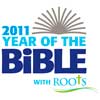The last 50 years of the four centuries since the publication of the King James Version has seen a proliferation of English language versions of the Bible. Simon Oxley considers what lessons Christians can learn from our experience of the Bible in our own language.
 Encouraging Bible study through creative processes and resource material has been a significant aspect of my work in the ecumenical movement and as a Baptist minister. Like generations of people before me, I grew up in church with the King James Version of the Bible. We referred to it as the Authorised Version, presuming that it was authorised by God rather than by the state. It was the Bible.
Encouraging Bible study through creative processes and resource material has been a significant aspect of my work in the ecumenical movement and as a Baptist minister. Like generations of people before me, I grew up in church with the King James Version of the Bible. We referred to it as the Authorised Version, presuming that it was authorised by God rather than by the state. It was the Bible.
When the New English Bible was published with much publicity, some welcomed the more modern English but most felt that it wasn’t really the Bible. I only encountered the Revised Standard Version later, when I came to study theology. Then over succeeding decades there was an explosion of versions in everyday language (e.g. Good News, New International Version) and more formal revisions (e.g. New King James Version, Revised English Bible, New Revised Standard Version).
We are right to celebrate the KJV and the liberating effect it had on personal faith, the churches and our culture. However, with no real English alternatives for centuries, it very firmly established itself as the one true translation. Even as time went by and we discovered earlier source texts and developed the science of translation, we stayed with the KJV. The KJV had liberated people from a reliance on priests and scholars to interpret the Bible, but gradually the power of such experts returned, as their knowledge was not available to the people who only had the KJV to read.
Language empowers the reader
If the language of the KJV was ever really the language of the people when it was first published, it certainly wasn’t by the twentieth century. Many words and phrases had radically changed their meaning or had fallen out of common use. The faith of individuals, and of churches, needs to be expressed in language that is accessible and meaningful to those who use it. The long, and sometimes continuing, dominance of the KJV may have made it harder for Christians to find words and thought forms appropriate to their own generation.
All translators have to select the source documents they use. It is important to recognise that languages reflect not only different vocabularies but also different ways of thinking. Translators from one language to another have to consider what the original means and then find words and phrases that best express it in the other language. Choices have to be made about how to do this. Different Bible versions reflect choices that come out of and reflect particular faith, church and social contexts. That is very obvious in the case of versions such as The Poverty and Justice Bible or The Inclusive Bible. The translators of the KJV had to conform to the self-understanding of the Church of England of the time. All versions bear the marks, sometimes quite subtly, of the context in which they were produced.
The value of variety
The danger for us all is that we simply replace the dominance of the KJV with that of another version that shares our own theological preferences. Instead, we should rejoice today in the variety of versions available to us. They can enrich our interpretation of what is being said to us in our time and in our situation by giving us different perspectives on the same verses and chapters. We should avoid an over-reliance on only one translation or giving unique authority to one version.
As what we know through biblical research increases, and as the language we use continues to change, we shall need to keep on producing new versions. That would truly honour the heritage of the KJV, which gave people access to the Bible in its own time and according to its own understandings. And instead of finding security in an unchanging version of the Bible such as the KJV, we should remember that ultimately we find the living Word of God in a person, Jesus Christ.
You are welcome to reproduce this article within your church or organisation.
Please ensure that the copyright line 'This resource is taken from www.rootsontheweb.com and is copyright © ROOTS for Churches Ltd 2011.' is included.
You can find out more about the Year of the Bible on the website www.2011trust.org.
 Go to index of all ROOTS
Go to index of all ROOTS
Year of the Bible 2011 material